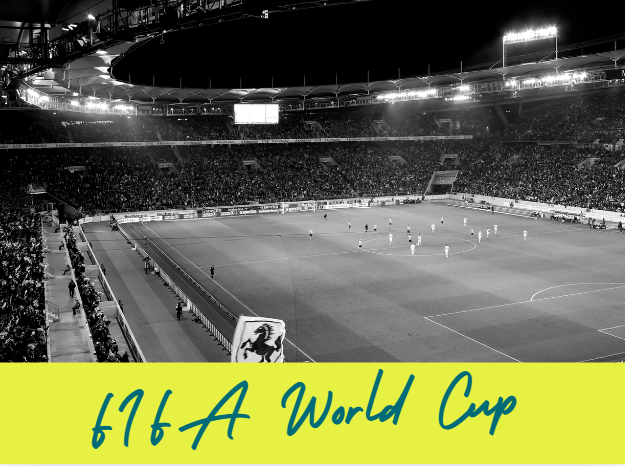
The FIFA World Cup: The Ultimate Global Football Celebration
The FIFA World Cup is more than just a football tournament; it is the pinnacle of international sport, a celebration of global unity, and an event that unites millions of fans across the world. Held every four years, the World Cup brings together the best national teams to compete for the title of world champion, showcasing the talent, passion, and excitement that define football (soccer) as the world’s most popular sport.
A Brief History of the FIFA World Cup
The FIFA World Cup, first held in 1930, was the brainchild of Frenchman Jules Rimet, then the president of FIFA (Fédération Internationale de Football Association). The inaugural tournament took place in Uruguay, and since then, the World Cup has grown into one of the most prestigious and widely viewed sporting events globally.
In the early years, only a handful of countries participated, but over time, the tournament expanded to include teams from all corners of the globe. Today, the World Cup features 32 national teams, with an upcoming expansion to 48 teams starting in 2026. The competition has seen legendary players, unforgettable moments, and incredible drama that have etched the tournament into the hearts of fans everywhere.
Why the FIFA World Cup Matters
- The World’s Biggest Stage for Football:
- The World Cup is the most prestigious competition in football. Players from every corner of the world dream of participating and lifting the coveted trophy. Teams that qualify have earned the right to represent their nations on the biggest stage, creating an intense sense of pride and national identity.
- Global Unity and Passion:
- The World Cup is not just a tournament; it’s a celebration of global unity. Fans from different cultures, languages, and backgrounds come together, united by their love of football. Whether you’re watching in a packed stadium, at home with family, or in a local bar, the collective energy and passion of World Cup fans are palpable.
- Unforgettable Moments:
- The FIFA World Cup has given us some of the most iconic moments in football history. From Diego Maradona’s “Hand of God” to Zinedine Zidane’s headbutt, and from Brazil’s dominance in the 2002 tournament to Argentina’s magical run in 2022, the World Cup is a stage where legends are made and unforgettable memories are created.
- The Rise of New Stars:
- The World Cup is often where future football legends are born. Players like Pelé, Maradona, Lionel Messi, and Cristiano Ronaldo have all left their mark on the tournament, but it also provides a platform for lesser-known players to shine. Every tournament is an opportunity for emerging stars to announce themselves to the world.
The World Cup Format
The FIFA World Cup follows a well-established format. The 32 teams (soon to be 48) are divided into eight groups, each containing four teams. The group stage sees each team play three matches, with the top two teams from each group advancing to the knockout rounds. The knockout stage is a high-stakes battle, with teams facing off in one-off matches until only two remain to contest the final.
The World Cup is filled with drama, surprises, and tense moments, especially during the knockout rounds, where every match could potentially result in a team’s elimination. The tournament culminates in the final, where the two best teams in the world battle for glory in front of a global audience.
The Impact of the FIFA World Cup Beyond Football
While the World Cup is primarily a football competition, its impact goes far beyond the sport itself. The tournament has a profound effect on host countries, both economically and culturally. Hosting the World Cup brings international attention, boosts tourism, and provides opportunities for economic growth. Countries around the world bid to host the tournament, knowing the significant benefits it brings in terms of infrastructure, tourism, and global recognition.
The World Cup also promotes cultural exchange, as fans from all over the world travel to the host nation, bringing their unique customs and traditions with them. The event creates a global festival of football, culture, and unity that transcends borders and fosters peace.
FIFA World Cup 2026: A New Era
The next FIFA World Cup, set to take place in 2026, will be historic for several reasons. For the first time, the tournament will be jointly hosted by three countries—Canada, Mexico, and the United States. Additionally, the expansion to 48 teams means that the tournament will feature even more nations, allowing for greater representation and more exciting matchups.
This marks a new chapter in the history of the World Cup, and fans are already buzzing with excitement for what promises to be an unforgettable tournament.
Conclusion: The Magic of the FIFA World Cup
The FIFA World Cup is more than just a football tournament—it is a global phenomenon that brings people together, creates unforgettable moments, and celebrates the beauty of the world’s most beloved sport. Whether you are cheering for your home country or enjoying the event as a neutral fan, the World Cup has the unique ability to unite us all through the magic of football.
As we look ahead to the 2026 tournament and beyond, one thing is certain: the FIFA World Cup will continue to inspire future generations, captivate millions of viewers, and showcase the unparalleled passion and drama of the beautiful game.
